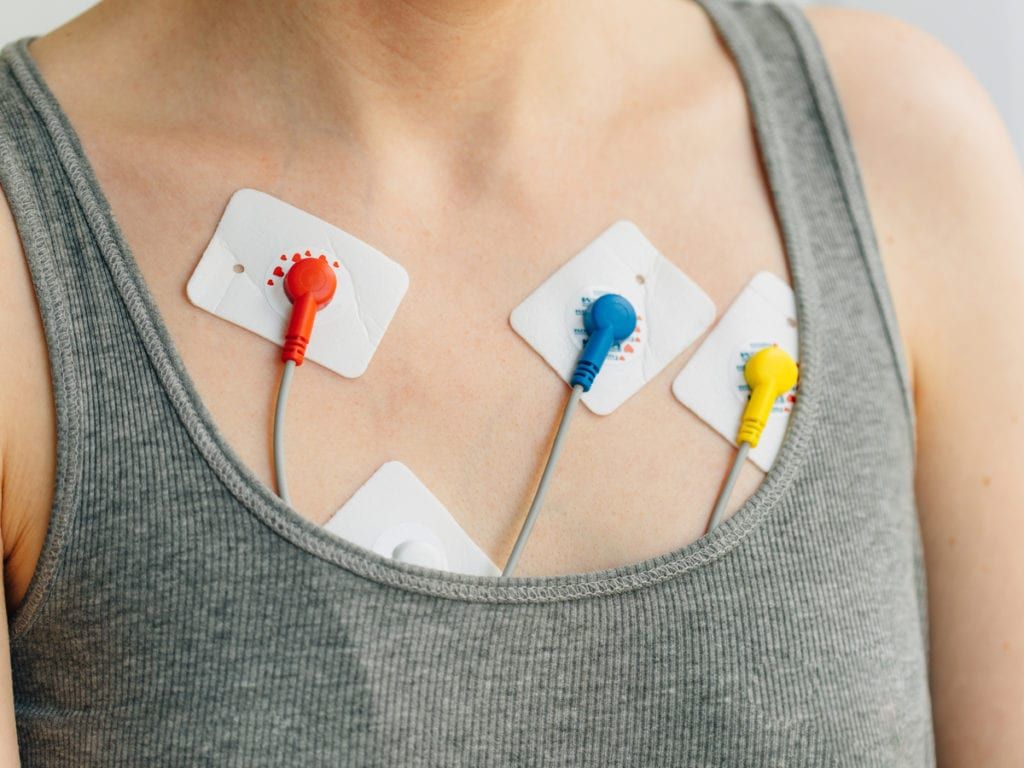When your physician suspects that there may be issues regarding your heart, they may order an electrocardiogram. These tests are used to monitor the health of the heart and are commonly performed in clinics, doctor’s offices, and hospitals alike. The equipment necessary to perform this test is so accessible that they are now standard issue in operating rooms and ambulances alike. These tests are painless, noninvasive, valuable for monitoring heart health. MD First Primary & Urgent Care has this equipment in our offices and is able to perform these tests when needs dictate.
How Are Electrocardiograms Performed?
Every time your heart beats, it is because it was triggered by an electrical pulse from a special set of cells. These cells, known as pacemaker cells, are located in your heart’s upper right chamber. An Electrocardiogram, or EKG, tracks these cells and records their strength and timing as the pulses they emit travel through your heart.
What Is A 12-lead EKG/ECG?
You may see this term in your doctor’s notes or in medical documentation. The term comes from the fact that an EKG measures 12 separate parts of the heart using ten electrodes placed around your chest and limbs. The resulting data is presented as a graph of waves, with the patterns indicating the various phases of your heartbeat. A typical EKG can only reveal abnormal heart rhythms if you’re undergoing the test when it happens. As abnormal heartbeats may not be constant, there are other forms of EKG that may be used depending on your condition.

Why Are EKG’s Performed?
The noninvasive and painless nature of this test makes it perfect for detecting common heat problems. The types of information the test can reveal include:
- Arrhythmias – Irregular heart rhythms
- Coronary Artery Disease – A disease that is caused by narrowed or blocked arteries in your heart.
- Structural Issues – Abnormalities in the structure of your heart’s chambers.
- Previous Heart Attacks
- Treatment Efficacy – This test can also reveal if treatments for the above are performing well, such as a pacemaker.
A rhythm test may be ordered if you’ve been experiencing certain symptoms. These symptoms may include:
- Heart Palpitations
- Chest Pain
- Confusion, lightheadedness, or dizziness
- Rapid Pulse
- Fatigue, weakness, or reduced ability to exercise
This test will typically not be performed if you are at low risk for these conditions. A family history of these conditions may cause your doctor to order an EKG even in the absence of symptoms as an early screening test.
Are There Any Risks With An EKG?
This procedure is almost entirely safe, with no risk of shock and almost no risk of any other complications. The few risks associated with an EKG include skin reactions to the electrode adhesive. Stress tests can occasionally trigger heart attacks or irregular heart rhythms. Some other forms of EKG tests involve longer test periods covering days. With these tests, irritation can result if you don’t move the electrodes each day.
If you have any other questions about EKG’s, then feel free to drop by our clinic at 1130 Hwy 9 Bypass W in Lancaster, SC. You can call our office to reach our medical staff at 1-803-283-2300 during our office hours.


